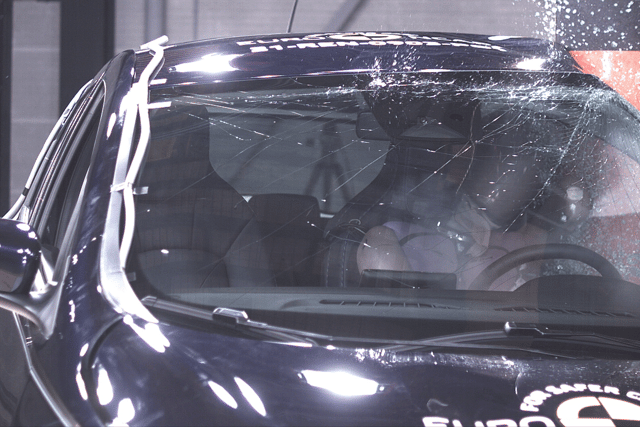Renault Zoe downgraded to rare zero-star safety rating after poor crash performance
and live on Freeview channel 276
The Renault Zoe has been given a rare “zero-star” rating by official safety testers in their latest round of assessments.
The compact EV, which was originally awarded five stars in 2013, was downgraded by Euro NCAP after a key safety feature was removed and it failed to meet new equipment standards introduced since it was last tested.
Advertisement
Hide AdAdvertisement
Hide AdThe Zoe is only the third car to receive a zero-star rating from Euro NCAP - the independent body which tests all new cars for crash safety.
Renault insists that despite the rating, the Zoe meets all regulatory safety requirements and many versions of the car feature advanced safety technology. It also pointed out that Euro NCAP’s testing protocol had changed since the Zoe was first designed and tested.


However, the brand has been criticised for removing a key airbag from the car’s specification and for failing to fit the now common autonomous emergency braking as standard.
The Zoe scored just 43% for adult occupant protection and was rated poor for the “frontal offset impact” performance. However, Euro NCAP highlighted its performance in the “severe side pole” test as a key point of concern.
Advertisement
Hide AdAdvertisement
Hide AdDuring the test, which replicates a side impact with an object such as a tree or lamppost, the driver dummy’s head made direct contact with the pole, showing the threat of serious injury or death. This, Euro NCAP says, is a result of Renault removing the combined head and thorax airbag previously fitted to the Zoe.
Matthew Avery, Euro NCAP board member and chief research strategy officer at the UK’s Thatcham Research, commented: “It is a serious concern to see results like this in 2021, especially from a carmaker who has previously performed well in Euro NCAP testing. Renault was the first to achieve the full five-star rating in 2001, in part because it was also the first to include a combined head and thorax airbag. Although this was a new and revolutionary safety measure at the time, today this airbag is available on most modern cars.
“Unfortunately, a conscious decision has been made to remove the head protection from this vital passive safety feature by the brand that pioneered the use of it. As a result, the safety of occupants within the vehicle has been severely impacted.”
The Zoe’s score was also affected by the lack of autonomous emergency braking and lane departure warning on entry-level models, features which are now included in the Euro NCAP assessments. That led to a score of just 14% in the safety assist category.
Advertisement
Hide AdAdvertisement
Hide AdA Renault spokesperson acknowledged the results of the latest testing and said that the brand was making changes to the car’s specification in the wake of the results.
They said: “Renault reaffirms that Zoe E-Tech Electric is a safe vehicle, which complies with all regulatory safety standards. These standards are constantly evolving and are becoming more stringent in all domains, especially in safety. Renault therefore continually improves its offer in order to comply with the regulations applicable where its vehicles are sold.
“Zoe was launched in 2013 and received 5 stars with EuroNCAP protocol at that time. The EuroNCAP protocol has since 2013 undergone five changes. With the same equipment, a model can lose up to two stars in each protocol change.
“The evolution of the current Zoe was decided in 2017 adapting the passive safety equipment to real accidentology and updating the car with state of the art ADAS equipment such as advanced emergency braking with pedestrian and cyclist detection, lane departure alert and lane keeping assist, using a radar and a camera.
“From March 2022, advanced emergency braking system will be fitted on every Zoe trim level as standard.”
Comment Guidelines
National World encourages reader discussion on our stories. User feedback, insights and back-and-forth exchanges add a rich layer of context to reporting. Please review our Community Guidelines before commenting.
